Struggling to make sense of Semrush data as a business owner? You might be missing out on key insights that could boost your SEO and online presence.
At Flying V Group, we excel in turning Semrush’s complex data into clear, actionable strategies. We tackle common challenges like understanding SEO metrics and choosing the right keywords. Let us show you how to use Semrush data to compete and lead in your digital marketing space.
What is Semrush Data?
Semrush data are the useful information you get when you search for something in Semrush, like a keyword or a domain. That’s because Semrush has a huge database with millions of URLs, billions of keywords, and trillions of links, all used to give you the insights you need.
Examples of Semrush Data
Semrush’s extensive database is a goldmine of insights for digital marketers, SEO specialists, and content creators. Here are some practical examples of the types of data you can extract from Semrush to power your online strategies:
1. Keyword Research Data
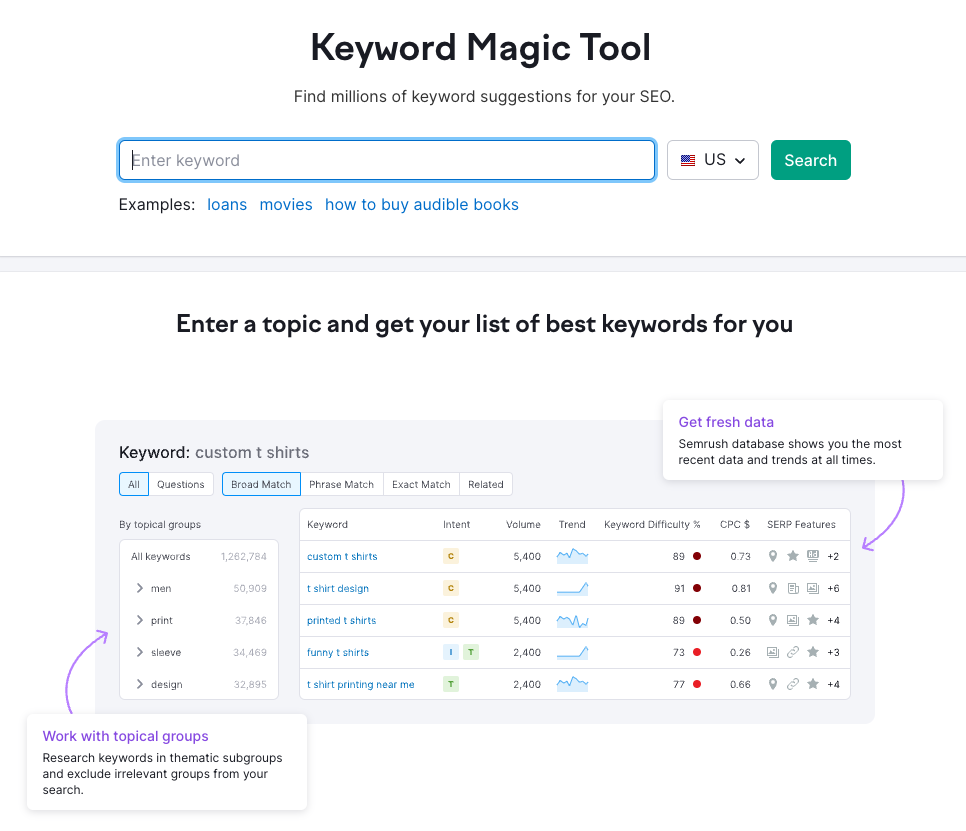
- Search Volume: Discover how many times a keyword is searched for in a month, helping you gauge its popularity.
- Keyword Difficulty: Understand how challenging it would be to rank for a specific keyword based on the competition.
- Cost-Per-Click (CPC): Get an estimate of the cost for paid search ads for particular keywords, useful for PPC campaigns.
2. Competitor Analysis Data
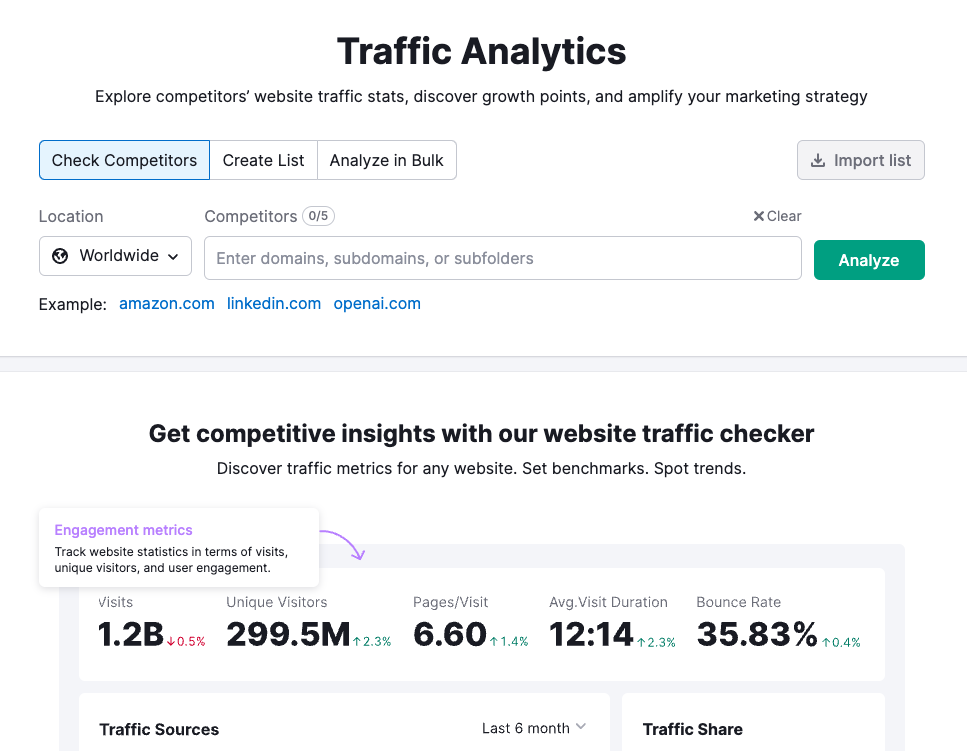
- Competitor Keywords: See which keywords your competitors are ranking for, providing insights into their SEO strategy.
- Site Traffic: Gain an overview of a competitor’s website traffic, including sources and volume.
- Ad Strategies: Analyze competitors’ paid advertising tactics, from ad copies to the keywords they target.
3. Backlink Analysis Data
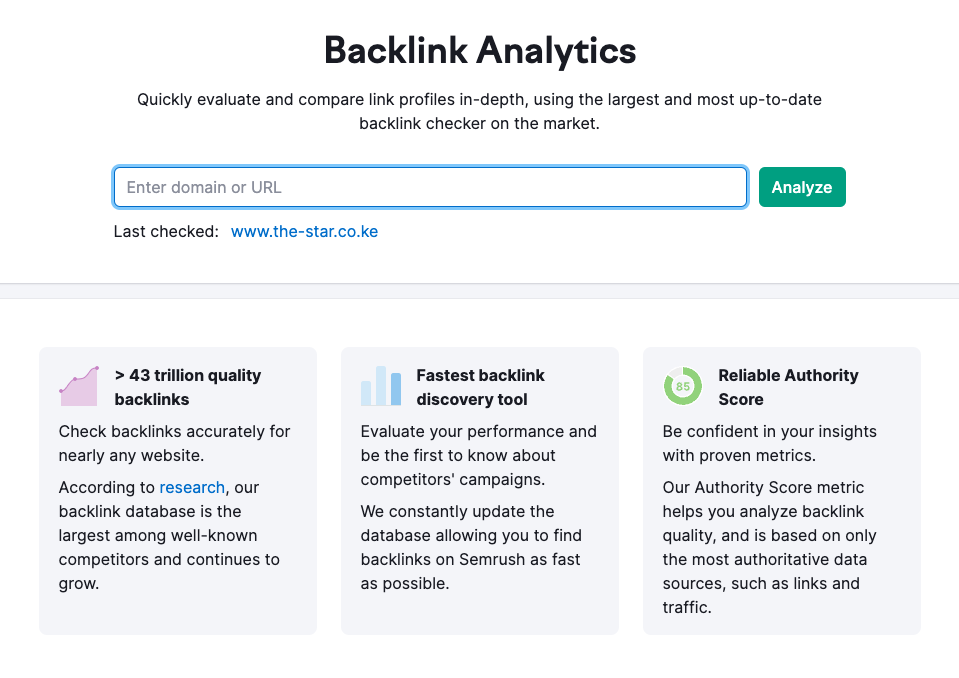
- Backlink Profiles: Examine the quality and quantity of backlinks pointing to your website or a competitor’s, crucial for SEO.
- Referring Domains: Identify which domains are linking back to your site, offering opportunities for partnership or further link-building.
- Anchor Texts: Review the anchor texts used in backlinks, which can affect the relevance and authority of the links.
4. Market Trends Data
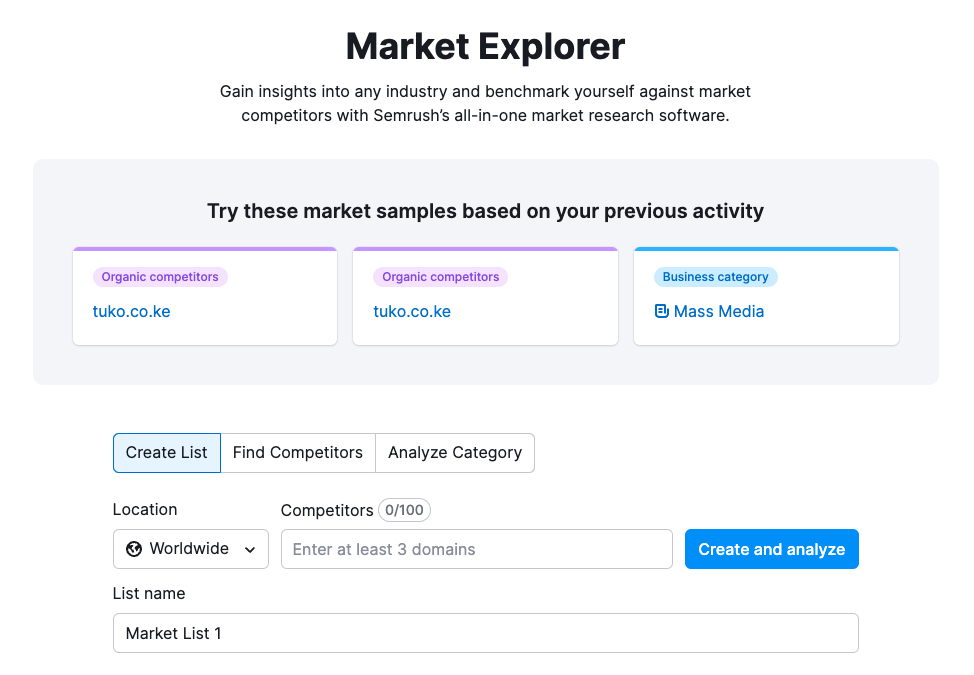
- Audience Demographics: Learn about the age, gender, and interests of your or your competitors’ audience.
- Industry Benchmarks: Compare your performance against industry averages in terms of traffic, engagement, and other key metrics.
- Emerging Trends: Spot new trends in your industry, from rising keywords to shifts in consumer behavior.
5. Content Marketing Insights
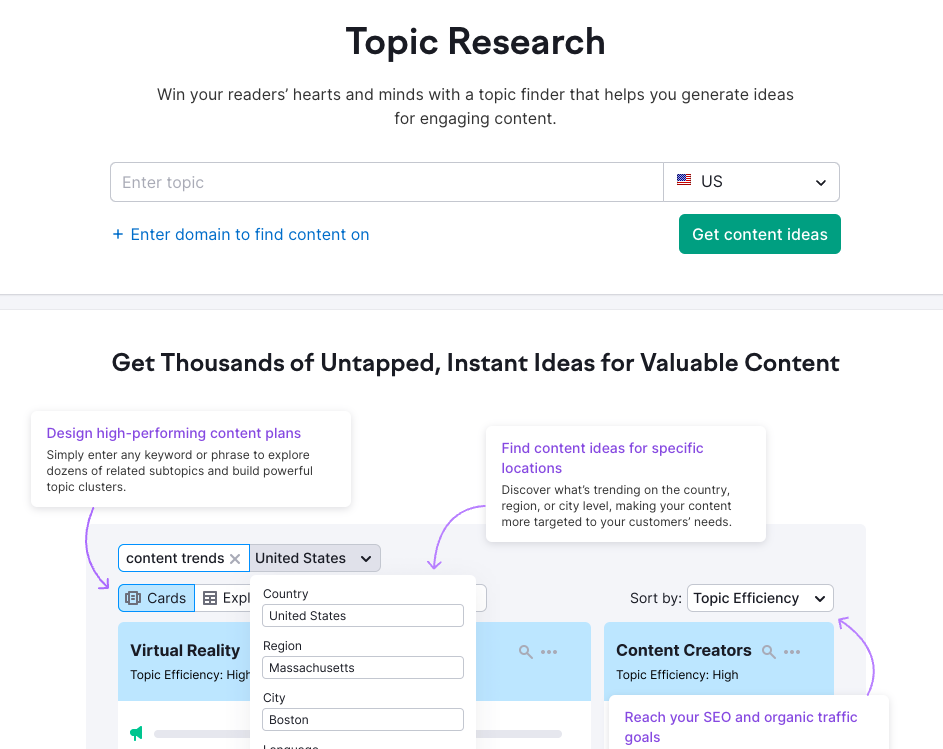
- Content Ideas: Generate topic ideas based on trending searches and questions in your industry.
- Content Gaps: Identify what content your competitors are missing, offering you a chance to fill those gaps.
- Engagement Metrics: Understand how well your content performs in terms of shares, likes, and overall engagement.
Advanced Applications of Semrush Data
Semrush isn’t just a tool; it’s a powerhouse of data that can transform your digital marketing. Here’s how to use it to outsmart competitors, understand your market, and boost your SEO and PPC campaigns.
Beat the Competition with Competitive Analysis
Semrush gives you a sneak peek into your competitors’ online strategies. This includes their keywords, where they’re getting their backlinks from, and their advertising moves.
Spot what your rivals might be missing, copy what they’re doing right, and find better keywords they haven’t noticed. This way, you can move ahead of them.
Understand Your Market with Market Research
Get the big picture of your industry and who you’re selling to. Semrush lets you break down info by location, what devices people use, and more.
Learn what your potential customers like and how they browse online. Then, create marketing campaigns that speak directly to them.
Sharpen Your SEO and PPC with Tailored Campaigns
Use Semrush to pick keywords wisely based on how hard they are to rank for and how many people are searching for them.
Plan your paid ads with insights on how much clicks cost, what the competition looks like, and the history of ads in your space.
Actionable Insights: Turning Data into Strategy
Not all data is equally important. Concentrate on the metrics that directly impact your goals, like more website visitors, better backlink quality, or higher keyword rankings.
Keep an eye on these key metrics to spot trends. Adjust your strategies as you go to stay on top of your game.
Integrating Semrush Data with Other Tools
Semrush is great on its own, but it’s even better when you use it with other tools you already have. Here’s how to mix Semrush data with your CRM, Google Analytics, social media, and advertising tools for a stronger marketing strategy.
CRM Integration
Linking Semrush with your CRM, like Salesforce or Hubspot, puts SEO insights right where you need them. This means your sales and marketing team can see which keywords and backlinks are working well directly in the CRM. It helps them tailor their talks with clients and make better sales pitches.
Google Analytics Integration
When you combine Semrush’s keyword info with Google Analytics, you get a full picture of how your SEO efforts are doing. You can see which keywords bring in traffic and lead to sales, helping you fine-tune your website and SEO plan for the best results.
Social Media Tools Integration
Use Semrush with social media managers like Hootsuite or Buffer to boost your posts. Semrush tells you which keywords to use to get more likes and shares. Plus, you can peek at what your competitors are doing on social media and adjust your strategy to stay ahead.
Advertising Tools Integration
Mixing Semrush data with Google Ads or Facebook Ad Manager helps you write better ads and choose the right people to target. Use Semrush to find the best keywords and see what the competition is doing, making your ads more effective.
By connecting Semrush with these tools, you can make your marketing efforts more connected and powerful, helping you reach your goals faster.
How We Leveraged Semrush Data to Turn Around ATCG Labs’ SEO Game
ATCG Labs, a biomedical lab handling various tests, approached Flying V Group to enhance brand awareness and fill their testing facility calendar with appointments.
Initially, ATCG’s advertising campaigns were not optimally structured. Flying V Group, utilizing insights from Semrush data, identified inefficiencies in ad spend allocation. Semrush’s detailed analytics revealed that most of the budget was directed to the least profitable testing lines. This insight led to a strategic shift, reallocating over 75% of the budget to the most profitable testing units.
Flying V Group leveraged Semrush’s robust keyword analytics and backlink data for SEO. This enabled them to dramatically improve ATCG’s average keyword positioning, moving from a ranking of 38.1 to 20.5. The high-quality backlinks and focused content strategy, guided by Semrush’s comprehensive keyword data, were instrumental in this improvement.
Results
- PPC and SEO Integration: Through the strategic use of Semrush data, the PPC and SEO efforts were more effectively integrated, leading to an ROI of 12.5x the monthly investment.
- Performance Metrics:
- Increased Click-Through Rate (CTR) by 48%, driving more traffic.
- Boosted testing appointments by 285%.
- Reduced Cost-Per-Conversion by 34% over three months.
Witness Awe-Inspiring Growth with the Power of Semrush Data!
As a business owner, you understand the headaches and heartaches associated with SEO and digital marketing. The solution to such problems lies in leveraging the power and potential of Semrush data.
With Flying V Group by your side, you’re not just getting a simple consultation; you receive a comprehensive strategy built on powerful insights derived directly from Semrush’s data-rich platform. Our professionals are well-versed in all the intricacies of Semrush, ensuring you get tailor-made marketing strategies that take your business to new heights. The clock’s ticking, and the time to act is now.
FAQs
What is Semrush data?
Semrush data encompasses extensive information used for digital marketing analysis, including keyword research, backlink profiles, competitor insights, search engine rankings, and traffic data, vital for SEO and PPC strategies.
Is Semrush data correct?
Semrush data, sourced from vast online resources, is generally accurate and reliable. However, like any analytics tool, there may be occasional discrepancies, and it’s best used in conjunction with other data sources for comprehensive analysis.
Why is Semrush data different from Google Analytics?
Semrush data focuses on competitive and market analysis, including external website metrics and industry benchmarks, while Google Analytics provides detailed internal data on a specific website’s user behavior, traffic sources, and engagement.
How big is the Semrush database?
The Semrush database is expansive, featuring over 20 billion keywords, 808 million domains, and 43 trillion backlinks, making it one of the largest and most comprehensive digital marketing databases available.






0 Comments